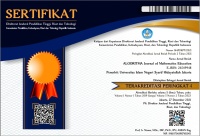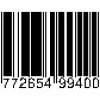Editorial Policies
Focus and Scope
ALGORITMA Journal of Mathematics Education (AJME) is a research journal major in mathematics education devoted to the interests of teachers, lecturers and researchers at all levels of education (from primary to university). The entire scope of research in mathematics education covers the following topics:
- Mathematical thinking
- Mathematical disposition
- Problem based learning
- ICT in mathematics
- Single subject research
- HOTS assessment
- Development of mathematics learning design
Section Policies
Articles
 Open Submissions
Open Submissions Indexed
Indexed Peer Reviewed
Peer Reviewed
Peer Review Process
ALGORITMA Journal of Mathematics Education, receives many article related to submissions to be published. Thus, peer-reviewers accept articles selectively and reject the papers which may need intolerable revisions. To be published in the ALGORITMA Journal, a paper should meet four general criteria:
- Presenting considerable evidence for its conclusions.
- Clear novelty.
- Distinct significance for scientists in the field.
- Open for inter or multi disciplinary studies.
Overall, the acceptable paper should represent an outstanding comprehension which is liable to inspire the thinking develepment of the field. There should be a perceptible reason as to why the work deserves to be published in the ALGORITMA Journal.
Open Access Policy
This journal provides immediate open access to its content on the principle that making research freely available to the public supports a greater global exchange of knowledge.












